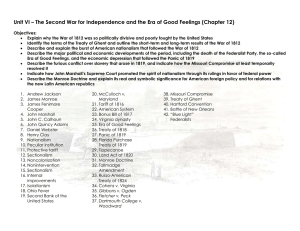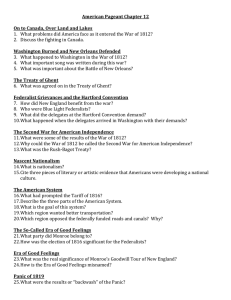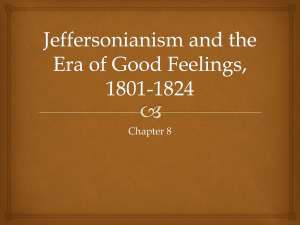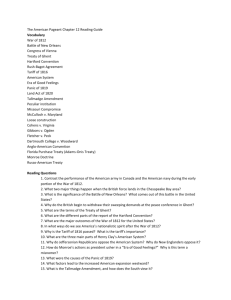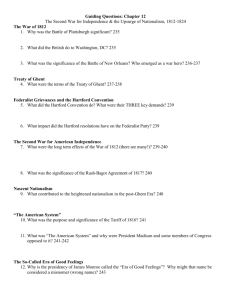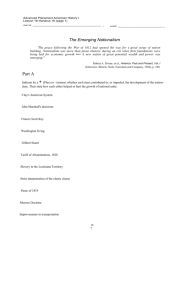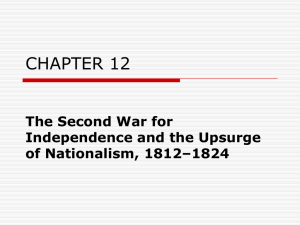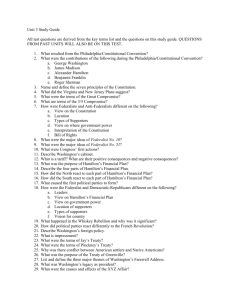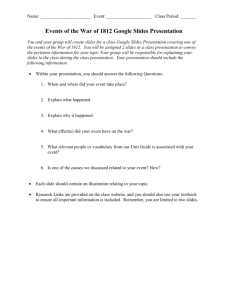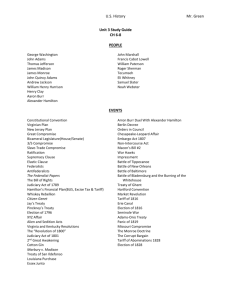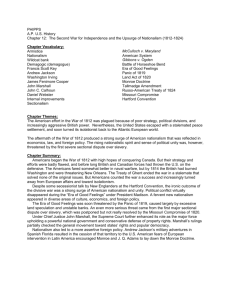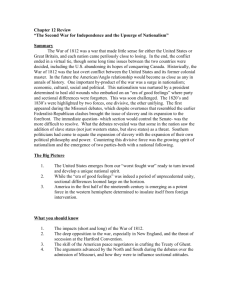Chp 12 Study Guide
advertisement
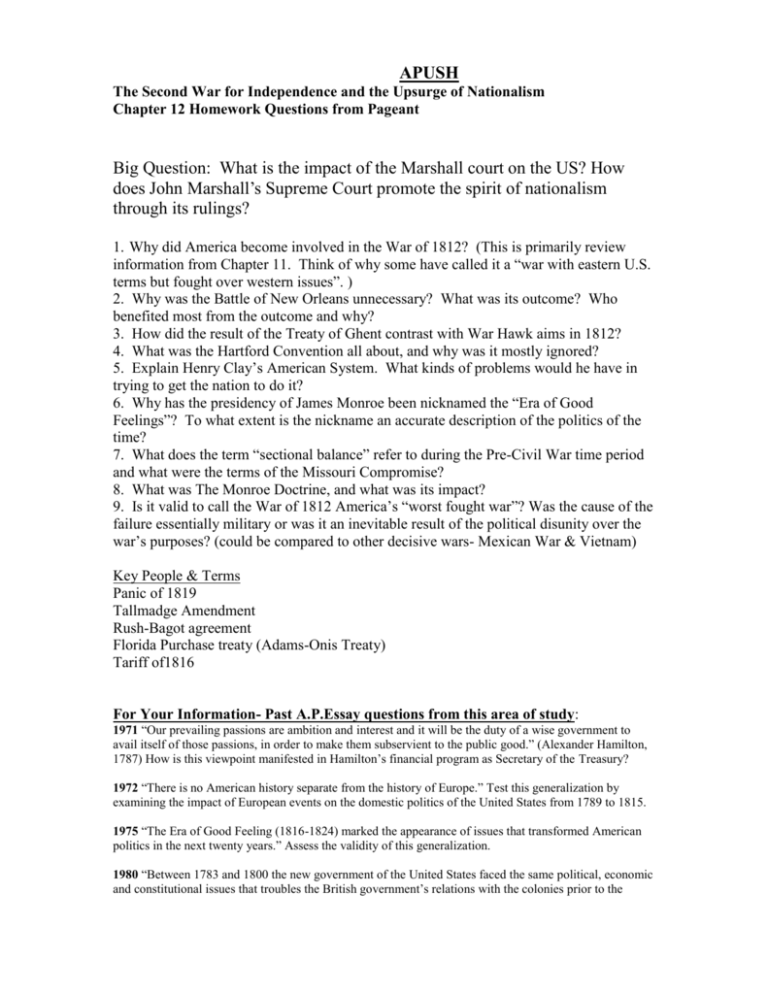
APUSH The Second War for Independence and the Upsurge of Nationalism Chapter 12 Homework Questions from Pageant Big Question: What is the impact of the Marshall court on the US? How does John Marshall’s Supreme Court promote the spirit of nationalism through its rulings? 1. Why did America become involved in the War of 1812? (This is primarily review information from Chapter 11. Think of why some have called it a “war with eastern U.S. terms but fought over western issues”. ) 2. Why was the Battle of New Orleans unnecessary? What was its outcome? Who benefited most from the outcome and why? 3. How did the result of the Treaty of Ghent contrast with War Hawk aims in 1812? 4. What was the Hartford Convention all about, and why was it mostly ignored? 5. Explain Henry Clay’s American System. What kinds of problems would he have in trying to get the nation to do it? 6. Why has the presidency of James Monroe been nicknamed the “Era of Good Feelings”? To what extent is the nickname an accurate description of the politics of the time? 7. What does the term “sectional balance” refer to during the Pre-Civil War time period and what were the terms of the Missouri Compromise? 8. What was The Monroe Doctrine, and what was its impact? 9. Is it valid to call the War of 1812 America’s “worst fought war”? Was the cause of the failure essentially military or was it an inevitable result of the political disunity over the war’s purposes? (could be compared to other decisive wars- Mexican War & Vietnam) Key People & Terms Panic of 1819 Tallmadge Amendment Rush-Bagot agreement Florida Purchase treaty (Adams-Onis Treaty) Tariff of1816 For Your Information- Past A.P.Essay questions from this area of study: 1971 “Our prevailing passions are ambition and interest and it will be the duty of a wise government to avail itself of those passions, in order to make them subservient to the public good.” (Alexander Hamilton, 1787) How is this viewpoint manifested in Hamilton’s financial program as Secretary of the Treasury? 1972 “There is no American history separate from the history of Europe.” Test this generalization by examining the impact of European events on the domestic politics of the United States from 1789 to 1815. 1975 “The Era of Good Feeling (1816-1824) marked the appearance of issues that transformed American politics in the next twenty years.” Assess the validity of this generalization. 1980 “Between 1783 and 1800 the new government of the United States faced the same political, economic and constitutional issues that troubles the British government’s relations with the colonies prior to the Revolution.” Assess the validity of this generalization. 1991 “Although historically represented as distinct political parties, the Federalists and the Whigs in fact shared a common political ideology, represented many of the same interest groups, and proposed similar programs and policies.” Assess the validity of the statement. 1.
